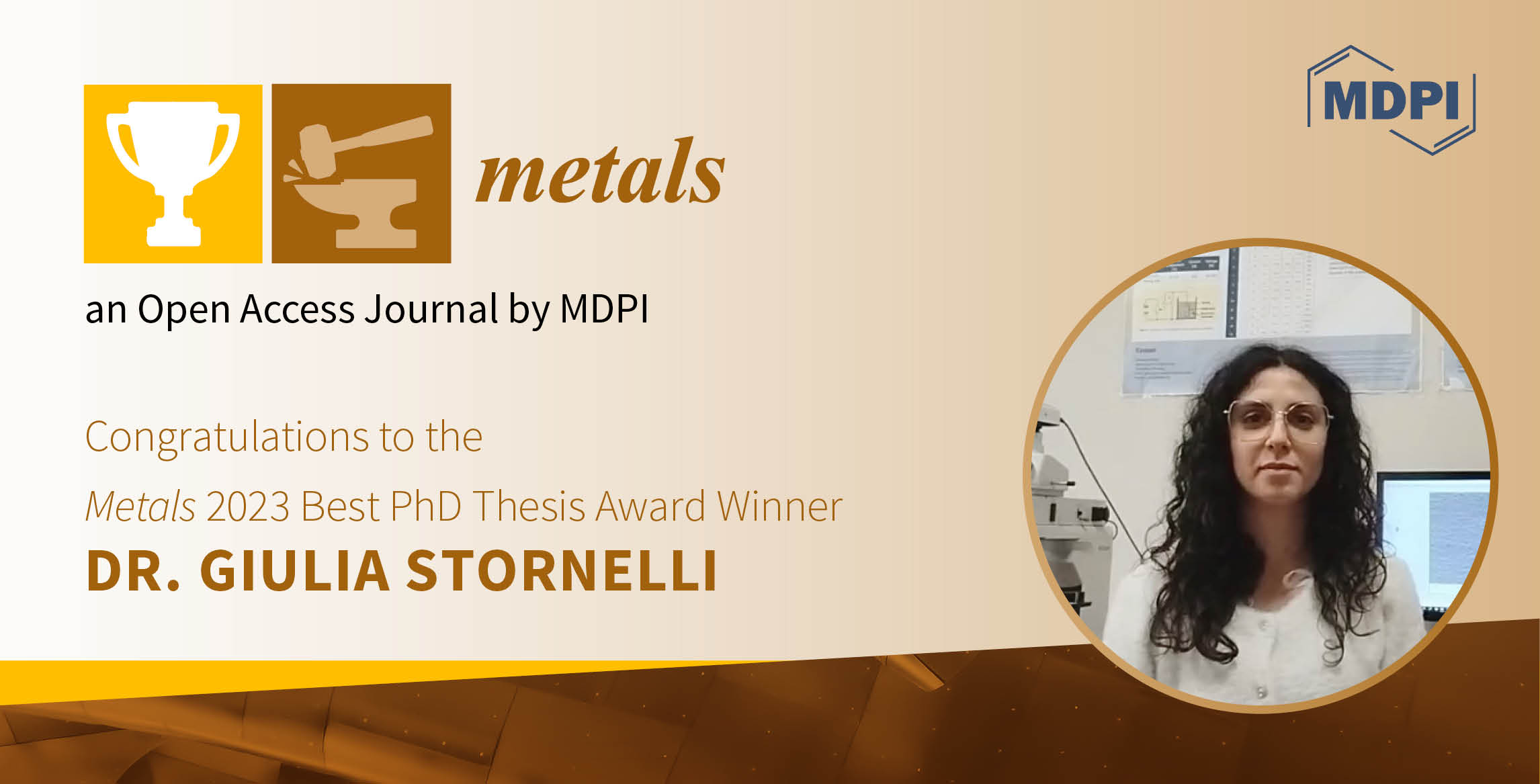
Interview with Dr. Giulia Stornelli—Winner of the Metals 2023 Best Ph.D. Thesis Award
We wish to congratulate Dr. Giulia Stornelli on winning the Metals 2023 Best Ph.D. Thesis Award. Dr. Giulia Stornelli received her master’s degree in mechanical engineering from the University of Roma Tre (Rome, Italy) in 2018 and her Ph.D. degree in industrial engineering from the University of Roma Tor Vergata (Rome, Italy) in 2023 under the supervision of Prof. Roberto Montanari and Prof. Andrea Di Schino. She is currently a Research Fellow in Metallurgy in the Engineering Department of the University of Perugia, Italy.
Interests: Additive manufacturing; innovative steel; non-conventional welding process
The following is an interview with Dr. Giulia Stornelli:
1. Could you briefly introduce yourself to the readers?
I am a young researcher with a strong passion for metallurgy. My field of research includes the study and optimization of steels and their production processes for the energy sector, but I am also involved in research programs concerning light alloys. During my Ph.D. studies, my research focused on the optimization of a thermo-mechanical process for the structural application of steel in nuclear fusion plants. In fact, the 2023 Best Ph.D. Thesis Award that I received concerned my Ph.D. thesis entitled “Novel Thermo-Mechanical Treatments on EUROFER97 Steel for Nuclear Fusion Application”. I am an active reviewer for many scientific journals. In addition, I also serve as a Guest Editor and Editorial Board Member for qualified scientific journals. I have also given numerous oral presentations at international conferences.
2. What is your current research and why did you choose this research field?
I am still working on EUROFER97 steel to improve its resistance to neutron radiation at low temperatures. In addition, a field that has fascinated me more and more over the years concerns additive manufacturing and its huge potential, especially in terms of its ability to promote the development of innovative alloys that would otherwise not be processable with conventional technologies. One topic of interest is the study of FeSi magnetic steels with a high Si content for the production of high-efficiency ferromagnetic cores via additive manufacturing.
3. Which research topics do you think will be of particular interest to the research community in the coming years?
I believe that energy efficiency is a topic of particular interest that will accompany us for the next few years. In particular, the development of metal alloys for extreme environments in the energy sector represents a challenge in the metallurgical sector. Furthermore, I believe that additive manufacturing processes represent the link between old and new production technologies.
4. What qualities do you think young scientists need?
Passion is necessary, as well as perseverance and discipline, a desire to learn and a strong adaptability for teamwork. However, the chance to work in a collaborative team is key to personal and professional growth.
5. If you have the opportunity, will you actively apply to attend academic conferences? What do you think you can learn from participating in conferences that you cannot from working in a lab?
I believe that participation in academic conferences is of considerable importance for the scientific growth of a young researcher. Active discussion with professors, researchers, technicians and experts of other research institutes and companies promotes curiosity for innovation and investigation.
I am very honored to receive this award and acknowledge the judging panel. Furthermore, I also want to express my appreciation and gratitude to my supervisors, Prof. Roberto Montanari and Prof. Andrea Di Schino, for their continuous support and encouragement of all my research activities.
